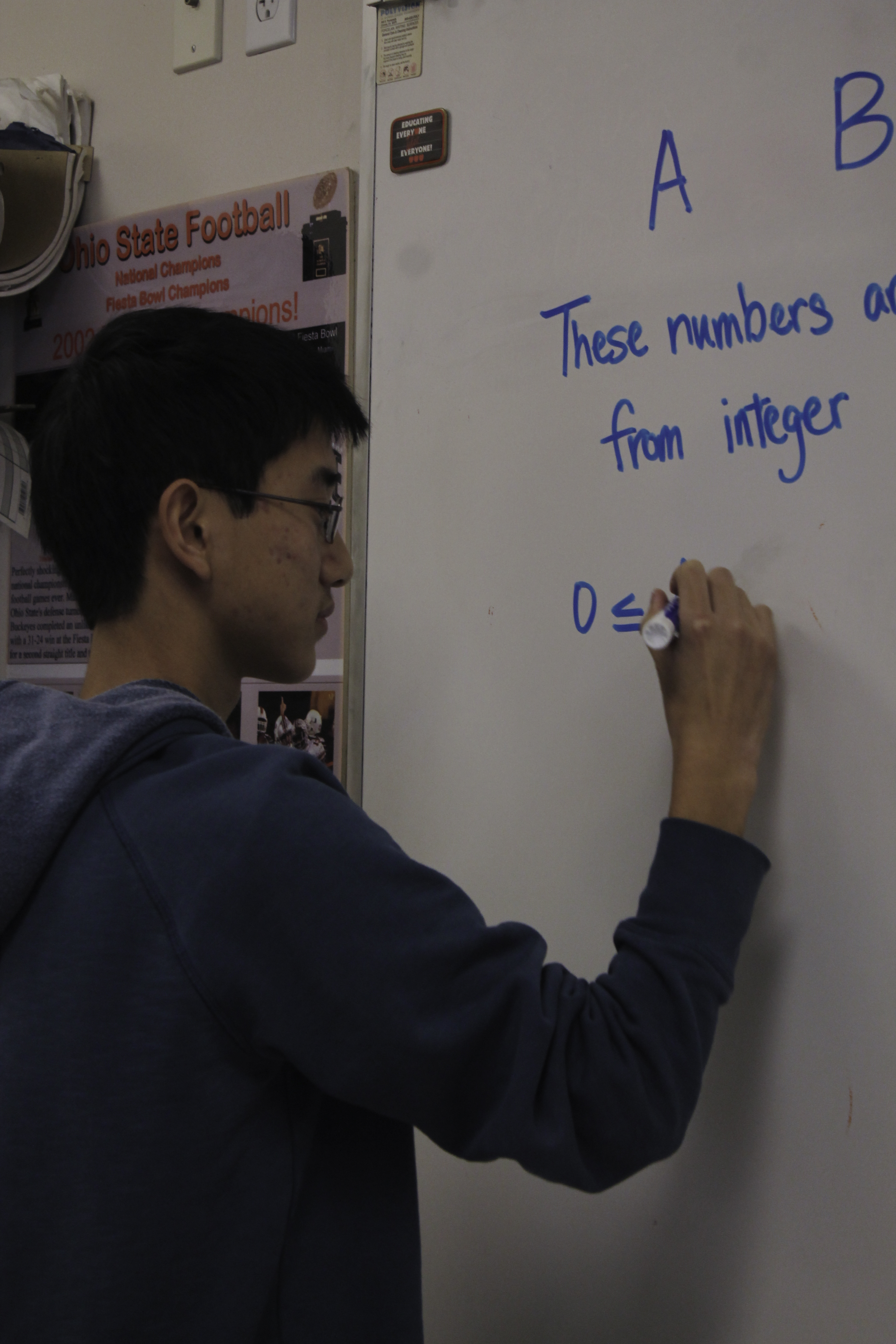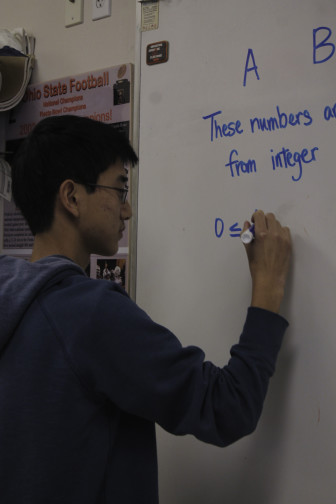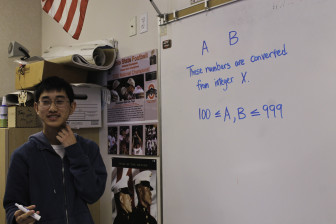
“When it comes to programming, he’s got tenacity; he doesn’t give up,” says Aragon math teacher and Programming Club adviser Lisa Kossiver about junior Tony Wang.
Wang is a competitive computer programmer who has won a variety of coding competitions, including a USA Computing Olympiad (USACO) and most recently, a top ten position among college students in the the 2014 Back 2 School Codesprint competition hosted by HackerRank.
“I try to do any competition that I think is at a good difficulty level that will help me improve, and that is at a good time zone for me. If there is a competition I can do, I’ll do it,” says Wang.
The current president of the Programming club, Wang first found his passion for programming in fourth grade; however, it was short-lived, as he lost interest after a year. Wang recalls, “The material was too hard, and I decided to quit because programming felt more like copying code than solving problems.”
But that was not the end of Wang’s path in programming. “I decided to pick up programming towards the end of middle school because of its problem-solving aspect. In language, speaking creates a great barrier, but for coding, typing is a very easy task. The main difficulty is in not getting intimidated by the format because in the beginning there’s a large portion of the template code that you don’t know,” says Wang.
During Wang’s freshman year, he began attending A-star winter and summer enrichment camps. Wang says, “These camps are specifically designed for math and coding competition, so they were a big benefit.”
Competitive programming is a mind sport usually held over the Internet or a local network, involving participants trying to program according to provided specifications. “It’s mainly like a math competition, but you solve problems with code instead of writing out a proof or giving an answer,” he says.
The USACO is a distinguished program that seeks computing education for all high schoolers. “I was first introduced to USACO in ninth grade after a friend told me about it towards the end of middle school,” says Wang.
“The USACO is split into three division of increasing difficulty: bronze, silver and gold.” Bronze is for students who have recently learned how to program, silver for those who have an adept grasp on the fundamentals, and gold for advanced students well-grounded in algorithmic problem-solving techniques.
“I started as bronze just like everyone else. Surprisingly, because of my background in programming, I advanced to the next division during the first contest. Here, I struggled a bit. The problems became more complex, and it was harder to solve them. After my first experience, I attended more camps for competitive programming and also worked on individual practice, which managed to advance me to gold after around three more contests,” he continues.
“At the gold level, the problems were a lot tougher. There was a huge skill difference between the bronze and gold level. At the gold level, the problems were a lot tougher and required more thought. Despite this, I was able to perform well enough to get invited to the training camp at the end of the year, which was very fun to attend,” continues Wang.
His success has inspired him to teach others as he views teaching as a mutual learning experience. “Being a teacher really requires you to have a well-rounded understanding of what you are teaching. Teaching makes you a better learner as well. When you teach, you realize how important it is for students to ask you questions. Applying this back to learning, it makes you more prone to asking questions, as you realize that most of the time, teachers love that you are asking questions, as it shows that the students are engaging with the material,” Wang says.
Kossiver says, “It’s very interesting to watch him; he’s an excellent teacher. He works well with others and is able to articulate the material in a way that enables the students in the Programming Club to understand what he’s saying.”
With regards to his personal pursuits, Wang’s short-term goal for this year is to do well in USACO this year. With his passion for programming, he has put some thought in pursuing it in the future. “Programming is definitely something that I consider doing, but I’m more interested in the problem-solving aspect then the coding one,” concludes Wang.





